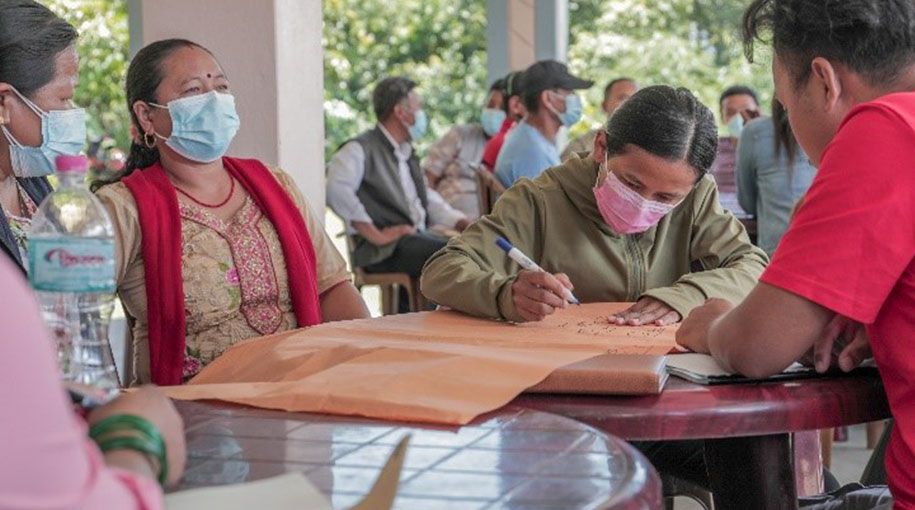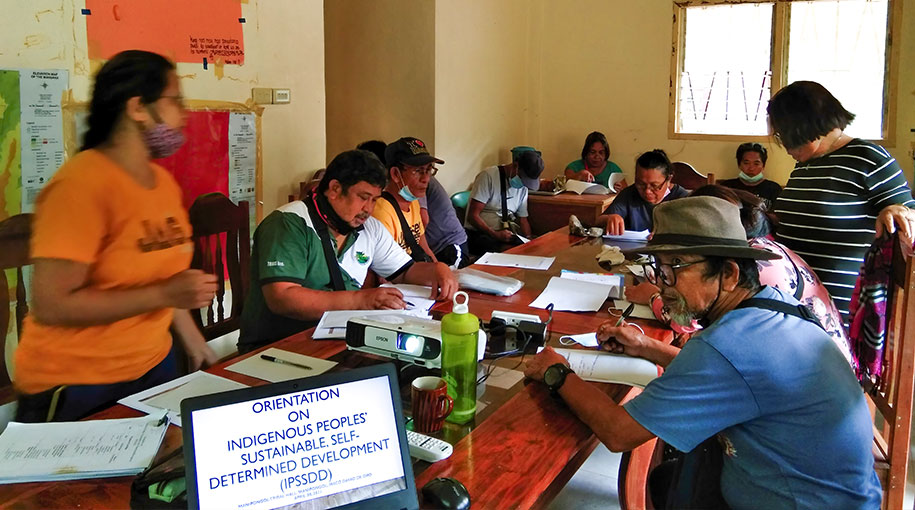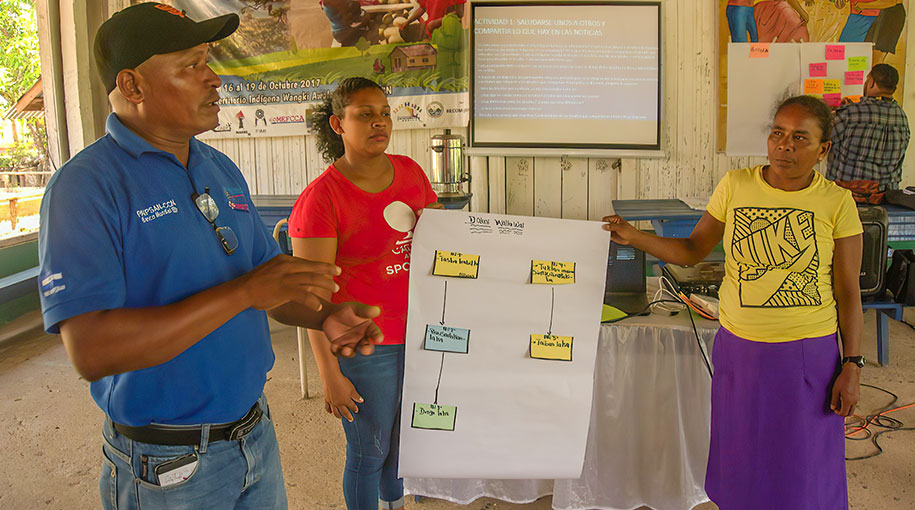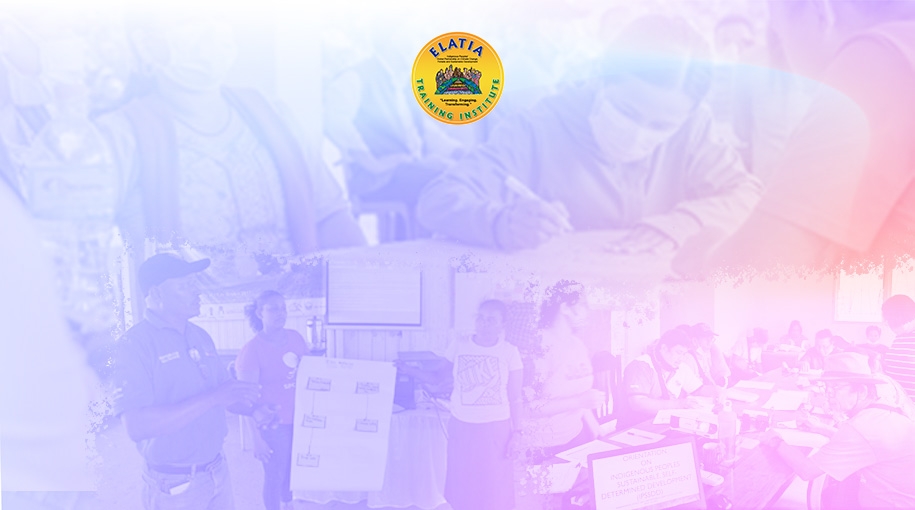A total of 578 indigenous leaders including indigenous women and youth from Nicaragua, Nepal, and the Philippines completed the training program on Indigenous peoples’ sustainable and self-determined development. With most of its activities implemented during the first half of 2021, the training supports the continuing learning of second-generation indigenous leaders.
In Nepal, the Center for Indigenous Peoples’ Research and Development (CIPRED) implemented virtual and in-person training on policy advocacy last June and July 2021. Particularly, participants including indigenous youth and women from Nepal’s Lamjung district were oriented on the promotion and recognition of indigenous peoples’ customary practices, traditional knowledge and skills for the sustainable management of resources and community development.

Photo: CIPRED
In addition, the training provided an opportunity for the youth to learn various customary practices from their elders. The youths also appreciated the importance of social media in culture and values information dissemination and awareness-raising.
In the Philippines, Silingang Dapit sa Sidlakang Mindanao (SILDAP-SE) conducted orientation-trainings, community workshops, and focused group discussions in six communities of indigenous peoples in the provinces of Davao de Oro and Davao del Norte. It is notable that most of the participants realized during the orientations that there is a need for more work to be done in relation to their self-governance and to the challenges besetting their culture such as the vanishing of their language, among others.

Photo: SILDAP-SE
Michael Guna, a Mansaka from Davao de Oro and an indigenous peoples’ mandatory representative to the local government, posited that the management of their ancestral domain and the utilization of its resources must be governed by indigenous peoples themselves and not by migrants. He expressed a desire to initiate the formulation of a local ordinance that would ensure the sustainability of their indigenous knowledge and practices.
In Nicaragua, the Centro para la Autonomía y Desarollo de los Pueblos Indigénas (CADPI) held community workshops for the Miskitus and Mayangnas of the North Caribbean Coast Autonomous Region. Discussions revolved around global issues affecting them including the impacts of climate change in their communities.

Photo: CADPI
“Mainly, we identify the different challenges facing each of the communities and, among them, find the common challenges, the different challenges per community,” expressed Larry Salomón, a community facilitator, during the training.
He stressed that one of the issues faced by the indigenous peoples in the Sauna As Territory is the conflict with settlers from Honduras who are illegally possessing community properties. In addition to that is the destruction and deterioration of their environment.
Echoing the sentiments of other participants from the three countries in terms of the trainings conducted in their communities, Gustavo Sebastian Lino, President of GTI Sauna As, said that the said training is essential because they get to see the reality that indigenous peoples confront not only within their community but also in other parts of the world. He stressed that the training opened spaces of knowledge that indigenous peoples have around the world which can, then, help the participants create better strategies and design change paradigms to better govern their communal property. “So that we can have security, protection, and defense,” he explained.
CIPRED, CADPI and SILDAP which are part of Elatia, a global partnership of indigenous peoples on climate change, forests, and sustainable development, also localized the IPSSDD Training Course guide being used by the Elatia Indigenous Peoples Training Institute, further allowing learners to appreciate its contents and relate it to their corresponding, specific situations.
Affected by the COVID-19 restrictions, the activities in the said countries were implemented with the support of Tamalpais Trust Fund through Tebtebba’s continuous project, Realizing indigenous peoples’ sustainable, self-determined development (IPSSDD) through training of next generation indigenous leaders, including women and youth.
(From reports of CIPRED, CADPI and SILDAP-SE and interview excerpts from the video, Chuklla, produced by CADPI.)


